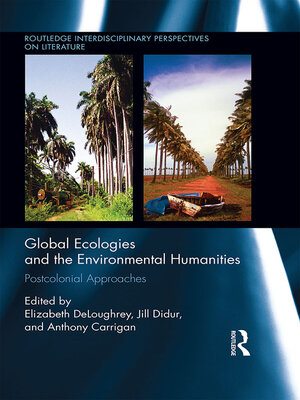Global Ecologies and the Environmental Humanities
ebook ∣ Postcolonial Approaches · Routledge Interdisciplinary Perspectives on Literature
By Elizabeth DeLoughrey

Sign up to save your library
With an OverDrive account, you can save your favorite libraries for at-a-glance information about availability. Find out more about OverDrive accounts.
Find this title in Libby, the library reading app by OverDrive.



Search for a digital library with this title
Title found at these libraries:
| Library Name | Distance |
|---|---|
| Loading... |
This book examines current trends in scholarly thinking about the new field of the Environmental Humanities, focusing in particular on how the history of globalization and imperialism represents a special challenge to the representation of environmental issues. Essays in this path-breaking collection examine the role that narrative, visual, and aesthetic forms can play in drawing attention to and shaping our ideas about long-term and catastrophic environmental challenges such as climate change, militarism, deforestation, the pollution and management of the global commons, petrocapitalism, and the commodification of nature.
The volume presents a postcolonial approach to the environmental humanities, especially in conjunction with current thinking in areas such as political ecology and environmental justice. Spanning regions such as Africa, Asia, Eastern Europe, Latin America and the Caribbean, Australasia and the Pacific, as well as North America, the volume includes essays by founding figures in the field as well as new scholars, providing vital new interdisciplinary perspectives on: the politics of the earth; disaster, vulnerability, and resilience; political ecologies and environmental justice; world ecologies; and the Anthropocene. In engaging critical ecologies, the volume poses a postcolonial environmental humanities for the twenty-first century. At the heart of this is a conviction that a thoroughly global, postcolonial, and comparative approach is essential to defining the emergent field of the environmental humanities, and that this field has much to offer in understanding critical issues surrounding the creation of alternative ecological futures.







